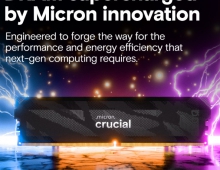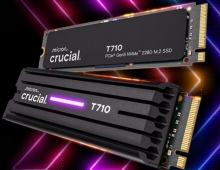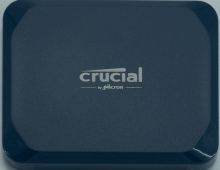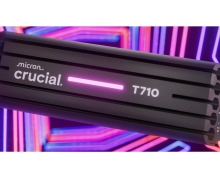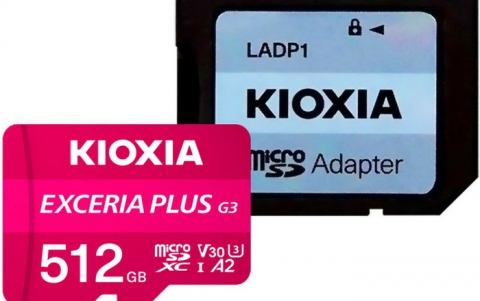Crucial Adrenaline 50GB SSD review
8. Benchmarks with DataPlex Software
Review Pages
We already saw how the Adrenaline drive performs as a normal SSD, without cache. Of course, the basic reason to go and buy the specific SSD series is its cache feature, powered by the DataPlex software. The software should be enabled using the serial number found at the rear side of the drive.
The installation of the software process is easy. All you have to do is select the target drive - the WD 500GB 7200rpm HDD in our case - and the cache drive:




After a successful installation and a reboot, you can check whether the DataPlex software is enabled using with a shortcut created on your desktop:

The Dataplex software is installed and ready to accelerate your system. Keep in mind that due the software's licensing method, you cannot install the same version of the software (same serial No) in another system . If two or more components of your system change, it is considered a “different” machine. If only one component changes, Dataplex automatically revalidates the license without issues, as long as the user is connected to the internet when the PC is rebooted after the change. Prior to changing two or more components, you should uninstall Dataplex to release the license.
Let's now proceed to the interesting part of the tests. The DataPlex software "monitors" your daily activity and caches the most frequently used applications and files in order to accelerate your system. This means that you won't be able to enjoy some real performance boost at once. Hopefully, after a few reboots everything will gets snappier. The same also applies for the benchmarking, so we performed each test three times before taking our final benchmark results.
In this test we will "accelerate" a normal HDD that has a rather low performance compared with today's SSD. The WD 7200 500GB Black Scorpio Edition gives about 70MB/s for reading & writing.
First we start with the CrystalMark 3.0.1 x64 Edition free benchmark. In the following tables you see the performance gains for both reading/writing.
The Crucial Adrenaline SSD and the OCZ Synapse SSD both accelerated significantly the HDD by taking advantage of the DataPlex Caching software (3rd run) at the seq/512K/4K tests. The 4K/4K QD32 tests belonged to the Adrenaline SSD, as the Marvell processor has no trouble dealing with incompressible data fast speed, and the Crucial cache is able to out-pace the OCZ solution in CrystalDiskMark's 4K QD32 test, with an excellent read performance.
CrystalMark 3.0.1 x64 - Reading (Default Pattern) |
No Caching |
OCZ Synapse Cache (Dataplex Software) |
Crucial Adrenaline (DataPlex Software) |
Seq |
70.34 |
192.1 |
200.2 |
512K |
33.97 |
188.70 |
173.6 |
4K |
0.543 |
24.91 |
21.6 |
4K QD32 |
1.319 |
50.68 |
199.6 |
In the writing tests, Adrenaline's sequential write performance isn't particularly exciting, but the drive is able to handle a large number of small transfers, making it a noticeable upgrade from a hard-disk only configuration:
CrystalMark 3.0.1 x64 - Writing (Default Pattern) |
No Caching |
OCZ Synapse Cache (DataPlex Software) |
Crucial Adrenaline (DataPlex Software) |
Seq |
70.26 |
61.47 |
100.5 |
512K |
49.27 |
59.98 |
99.8 |
4K |
1.22 |
59.25 |
68.3 |
4K QD32 |
1.23 |
53.36 |
98.6 |
At the HD Tune 5.0 benchmarking software, the Adrenaline caching returned higher results than OCZ' solution
HD Tune 5.0 Reading Performance |
No Caching |
OCZ Synapse Cache (DataPlex Software) |
Crucial Adrenaline (DataPlex Software) |
Minimum |
44.5 |
72.2 |
78.9 |
Maximum |
91.6 |
182.9 |
221.3 |
Average |
75.2 |
126.8 |
154.3 |
Access Time |
12.6 |
0.119 |
0.114 |
Burst Rate |
156.1 |
176 |
180 |
Below you see the results of the HD Tune 5.0 File Benchmark sub test:
| HD Tune 5.0 File Benchmark Reading (Zero Data Pattern) |
No Caching |
OCZ Synapse Cache (DataPlex Software) |
Crucial Adrenaline (DataPlex Software) |
|
| Sequential | 67953 |
465336 |
485736 |
|
| 4K Random Single | 123 |
7619 |
7542 |
|
| 4K Random Multi 32 | 327 |
20867 |
22879 |
|
| Block Read | 80 |
475 |
485 |
HD Tune 5.0 File Benchmark Writing (Zero Data Pattern) |
No Caching |
Synapse Cache (DataPlex Software) |
Crucial Adrenaline (DataPlex Software) |
Sequential |
68109 |
392890 |
378649 |
4K Random Single |
370 |
14335 |
14215 |
4K Random Multi 32 |
343 |
75538 |
73499 |
Block Write |
75 |
300 |
289 |
While the above benchmarks gave us an idea of the performance expected from the Crucial Adrenaline SSD, caching more complex data will be likely more challenging. So the next benchmark is PCMark 7, which uses patterns met in everyday's real-life PC tasks. The specific tests were performed four times:
PCMark 7 v1.0.4 |
No Caching |
Synapse Cache (DataPlex Software) |
Crucial Adrenaline (DataPlex Software) |
PCMark Score |
2991 |
4559 |
4425 |
Lightweight Score |
2378 |
4796 |
4818 |
Productivity Score |
2206 |
4657 |
4971 |
Creativity Score |
3268 |
4925 |
4634 |
Entertainment Score |
3013 |
3538 |
3573 |
Computation Score |
4253 |
4241 |
4116 |
System Storage Score |
1853 |
4838 |
4940 |
Finally, below you see how the DataPlex software optimizes its caching as you are using your system. We ran the same PC Mark benchmarks four times with Crucial Adrenaline SSD and the performance was improved accordingly:
PCMark 7 v1.0.4 |
||||
PCMark Score |
3104 |
4406 |
4416 |
4425 |
Lightweight Score |
2550 |
4797 |
4812 |
4818 |
Productivity Score |
2312 |
4945 |
4971 |
4971 |
Creativity Score |
3412 |
4630 |
4631 |
4634 |
Entertainment Score |
3089 |
3559 |
3568 |
3573 |
Computation Score |
4113 |
4137 |
4114 |
4116 |
System Storage Score |
2023 |
4913 |
4994 |
4940 |
Review Pages


